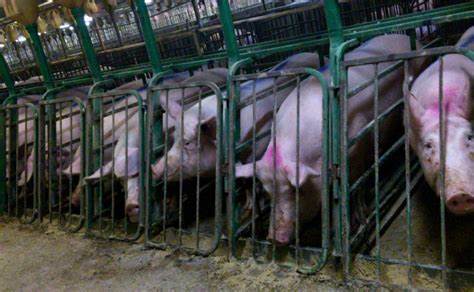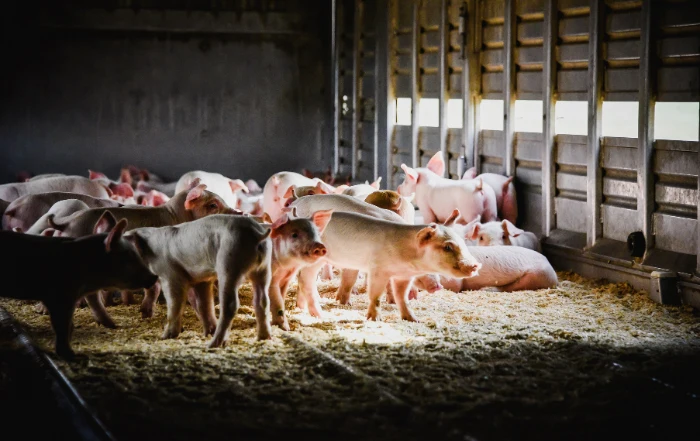The recent US Supreme Court ruling in National Pork Producers Council v. Ross has upheld California’s right to require higher welfare standards for farm animals raised outside the state if their products are to be sold in California.
This decision, while complex and divided, marks a significant victory for animal welfare advocates. It is expected that several states will now follow suit, potentially leading to a patchwork of laws that could discomfort national meat producers.
This outcome may ultimately push Congress to establish federal standards for animal welfare.
Improving Conditions for Sows
The lawsuit against California’s law was brought by pork producers who contested the state’s requirement for each pregnant sow to have a minimum of 24 square feet of floor space, nearly double the industry standard.
The National Pork Producers Council argued that this imposed significant compliance costs on farmers across the country and hindered interstate commerce.
However, the Supreme Court majority noted that major producers, including Hormel and Tyson, have expressed their ability to comply with California’s standards. Niman Ranch, a network of family farmers focused on humane and sustainable livestock practices, supported California’s law in an amicus brief.

States Empowered to Regulate Animal Welfare
Since Congress has not established federal standards for farm animal welfare, individual states have taken the initiative to address this issue within their borders.
Several states have already outlawed battery cages for egg-laying chickens, and in addition to California, nine states have phased out gestation crates for pigs.
Massachusetts has also adopted a similar law, pending the Supreme Court’s ruling on the California case.
California's Market Power
The California law stipulates that pork producers must adhere to the state’s regulations if they want to sell pork in California.
Producers from both within and outside of California are subject to the same requirements, preventing direct discrimination between states.
While this law empowers California to set its own standards, it does not violate the commerce clause of the Constitution.
Fractured Verdict and Dissenting Opinions
The Supreme Court ruling was divided, with justices offering differing reasoning for upholding the California law.
Some justices believed that the pork industry failed to prove substantial interference with interstate commerce, while others argued against balancing compliance costs with voters’ moral concerns about animal welfare.
However, all agreed that the type of pork sold in California does not warrant constitutional intervention.
Dissenting justices presented varying views on why the law posed a constitutional problem, including substantial interference and increased costs for pork producers.
Implications Beyond Pork
This victory for animal welfare advocates extends beyond pork production.
It sets a precedent for states with progressive animal welfare policies to effectively establish national standards for other agricultural animals, such as chickens, dairy cows, and cattle.
Additionally, California may have the potential to require basic labor conditions associated with products sold in the state, like minimum wage standards.
More To Discover
- EU’s Dilemma: Sacrificing Animal Welfare For Cost of Living Comfort
- UK’s Chicken Industry in Crisis: 80 Million Deaths Point to Unsustainable Practices
- Advocates Seek an End to Canadian Horse Meat Market: The Complexities of a Controversial Issue
- Lasers Can Transform Poultry Farming for Better Chicken Health, Welfare, And Flavor
Future Outlook and National Legislation
With the momentum gained from the Supreme Court ruling, it is anticipated that Congress will enact national legislation on farm animal welfare within the next five years.
The outcome of such legislation, whether it will improve animal welfare or perpetuate poor practices, remains uncertain.
Nevertheless, California’s triumph represents a significant achievement for advocates who have long fought to enhance conditions for farm animals across the United States.


















